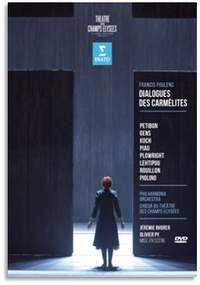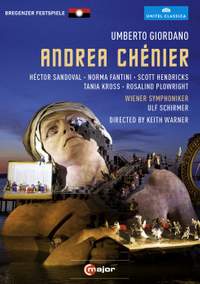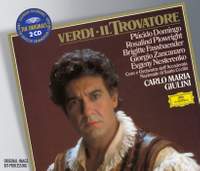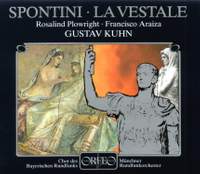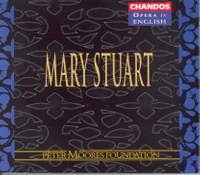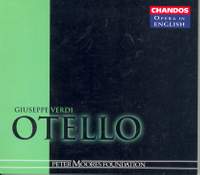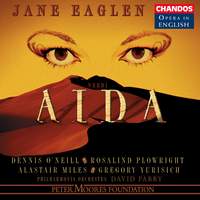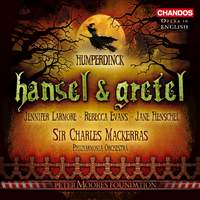Interview,
Rosalind Plowright on Dialogues des Carmélites
 The term 'singing actress' is probably a little overused these days, but if it applies to anyone it's Rosalind Plowright: now into the fourth decade of a distinguished career which has seen her share the stage (and on occasion the recording-studio) with legends like Luciano Pavarotti, Placido Domingo and Dame Janet Baker, she initially made her mark as a spinto soprano, winning widespread international acclaim for her firebrand portrayals of roles such as the title-characters in Norma and Medée, Elisabetta (Maria Stuarda) and many of the big Verdi roles. In the late 1990s she began to take on dramatic mezzo repertoire, triumphing as Amneris, Fricka, the Kostelnicka in Jenůfa and the Princesses in Adriana Lecouvreur and Suor Angelica.
The term 'singing actress' is probably a little overused these days, but if it applies to anyone it's Rosalind Plowright: now into the fourth decade of a distinguished career which has seen her share the stage (and on occasion the recording-studio) with legends like Luciano Pavarotti, Placido Domingo and Dame Janet Baker, she initially made her mark as a spinto soprano, winning widespread international acclaim for her firebrand portrayals of roles such as the title-characters in Norma and Medée, Elisabetta (Maria Stuarda) and many of the big Verdi roles. In the late 1990s she began to take on dramatic mezzo repertoire, triumphing as Amneris, Fricka, the Kostelnicka in Jenůfa and the Princesses in Adriana Lecouvreur and Suor Angelica.
Last autumn, she sang the harrowing role of the terminally-ill Old Prioress, Madame de Croissy, in Olivier Py's new production of Poulenc's Dialogues des Carmélites at the Théâtre des Champs-Elysées - the only female role cast with a non-Francophone singer. The production was released on DVD and Blu-ray by Erato last month, and last week I had a chat with Rosalind over email to find out a little more about her career to date and about the special demands of this particular opera and role…
How much of a part has French repertoire played in your career to date, and how was the experience of being the only non-native French-speaker amongst the female principals?
My only encounter with genuine “French” opera was the title role of Massenet's Herodiade for Dorset Opera. Apart from that I have had virtually no dealings with French repertoire at all. That is not to say that I have never sung in French. Indeed I have performed some of the greatest classical operas in their original French versions. My first was Cherubini’s Medée which I sung in the French version with spoken dialogue first at the Buxton Festival, then in Lyon and then at Covent Garden (their first Medée since Callas performed the Italian version there some 30 years before). I also performed Spontini’s La Vestale in its French version for Orfeo records and the French version of Alceste at the very beginning of my professional career with the Bern Opera both under Gustav Kuhn.
The team of French principals on this DVD and in the live performances was a dream to work with. The production was built around the availability of these four artists with the part of Mme de Croissy being cast after those four had been secured. I was asked to go to Paris and sing for Michel Frank, the incoming director of the Théâtre des Champs-Elysées as he wanted to make sure my “French” was up to it.
What special challenges does Mme de Croissy pose – and did any of your previous roles feed into them?
Mme de Croissy is a special role and one of my all time, mezzo, favourites. There are not that many cameos of this stature in the world of grand opera (I am thinking of the Countess in Pique Dame as another example). This role has an entire scene requiring both the spectrum of voice and acting in extremity. Perhaps what makes Mme de Croissy so special is that she covers her entire life in this one scene with Mère Marie. She then shows her “Mother” side in her dialogues with Blanche and finally undergoes the most horrifically painful death causing her to act in complete contrast to the sermon she has just given to Blanche and dies blaspheming and writhing in agony. It is a show-stealing scene if there ever was one and can only be done by a true dramatic mezzo. So I was hugely grateful to be chosen and to have this preserved on this DVD.
As far as my previous roles are concerned there are emotions in Mme de Croissy which are similar e.g. La Zia Principessa in Suor Angelica but the actual death of Mme de Croissy is unique in my experience of acting.
You’ve sung Mme de Croissy previously in Stuttgart, in a production by Thomas Bischoff – how different an experience was this Olivier Py production from Paris?
These were hugely different productions. Thomas Bischoff went into a detailed study of the characters asking his cast to focus on their characters through expression (and sometimes, lack of expression). Oliver Py created his drama with the use of lighting, sets and amazing effects – my own scene under Oliver Py had me in a bed, vertically attached to the back wall of the stage. This allowed the audience to view me as if they were watching from above, “Like God,” as Py put it. It made the singing easier as I was actually standing as opposed to lying down which I did in the Bischoff production. The diversity between different producers allows a singer to gain even more insight into a character.
So what’s next (at least, that you can share with us at this stage!)? You’ve sung a huge variety of repertoire in the course of your career, encompassing both soprano and dramatic mezzo roles and now the almost contralto role of the Prioress - do you see yourself staying with relatively low mezzo roles from now on?
My focus for now is on a few dramatic mezzo roles. My favourite is Klytämnestra, closely followed by Mme de Croissy and Herodias. I am also offered character parts like Mrs Sedley and would love to sing the Countess in Queen of Spades (I sadly had to turn this down this week as it clashed with another engagement) and I still enjoy the odd foray into the Italian mezzo repertory. So in 2015 I am at Covent Garden doing La Contessa de Coigny and then at Opera Holland Park with La Zia Principessa. Later on I do Mrs Sedley in Vienna, Herodias in Salome and I even have a contract in 2019 (yikes) to sing a new Janacek role, the Mother-in-law from hell – Kabanicha [in Káťa Kabanová]– at Covent Garden.
Olivier Py's production of Dialogues des Carmélites, starring Rosalind Plowright as Mme de Croissy, is out now on Erato.
Available Format: 2 DVD Videos
Other recordings featuring Rosalind Plowright
Recorded in 1989 under Richard Hickox, this recording features Willard White in the title-role and Plowright in the soprano roles of the Widow and Angel.
Available Formats: 2 CDs, MP3, FLAC
Plowright sings both La comtesse di Coigny (a role she'll repeat at Covent Garden in January) and Madelon in Keith Warner's 2011 production on the remarkable floating stage at Bregenz.
Available Format: DVD Video
Plowright recorded the role of Leonora, opposite Placido Domingo as Manrico and Brigitte Fassbaender as Azucena, under Carlo Maria Giulini in 1983.
Available Formats: MP3, FLAC
The Vestal virgin Julia in Spontini's 1807 melodrama was another Plowright speciality in her soprano days, powerfully caught here under Gustav Kuhn in 1991.
Available Formats: MP3, FLAC
BBC Music Magazine described Plowright as ' a tender, lyrical and fearful Leonora' on Giuseppe Sinopoli's 1985 Forza, also starring José Carreras as Alvaro and Agnes Baltsa as Preziosilla.
Available Formats: MP3, FLAC
Sung in English, this is a truly legendary account of the middle instalment of Donizetti's 'Tudor trilogy', with Plowright's majestic Elizabeth sparking off Dame Janet Baker's Mary in oneof the latter's final operatic projects.
Available Formats: 2 CDs, MP3, FLAC
Another recording from the English National Opera stable in the early 1980s, Plowright's Desdemona won praise for her 'an amazing balance of beauty of tone and musicianship' (MusicWebInternational).
Available Formats: 2 CDs, MP3, FLAC
Recorded in 2001, shortly after Plowright started embracing mezzo roles, this English-language Aida showcases her fine sense of vocal drama as 'a suitably vehement and fruity Amneris' (Gramophone).
Available Formats: 2 CDs, MP3, FLAC
Plowright sings Gertrude (a role which she went on to perform at the Metropolitan Opera) on Sir Charles Mackerras's delightful Hänsel und Gretel, which won a Gramophone Award for Best Opera Recording in 2007.
Available Formats: 2 CDs, MP3, FLAC, Hi-Res FLAC


